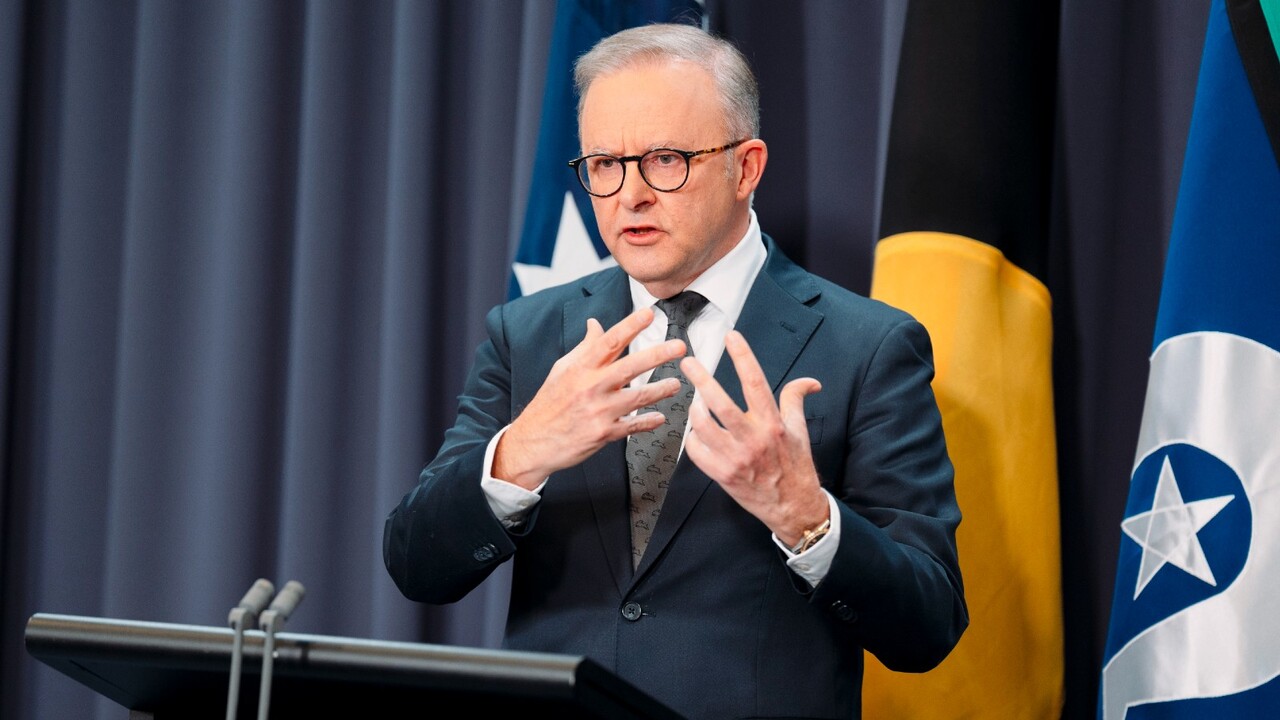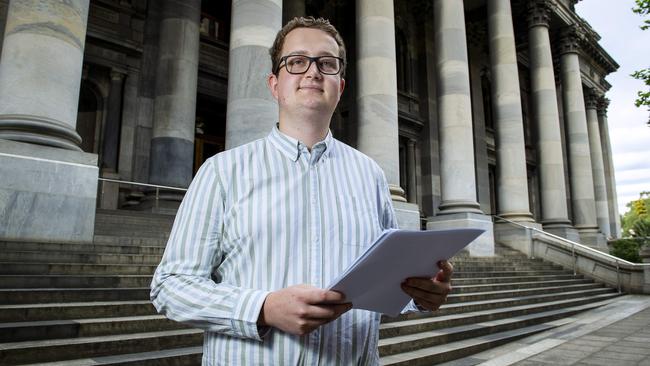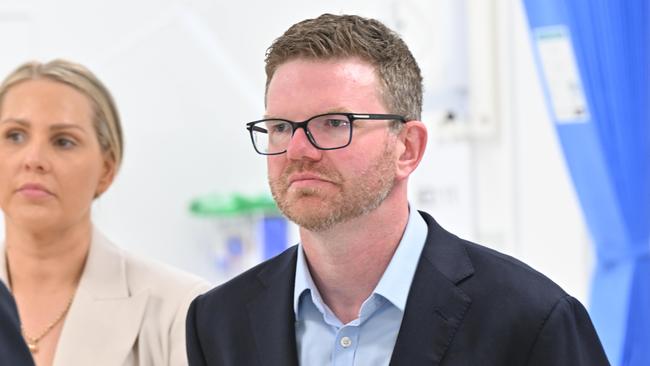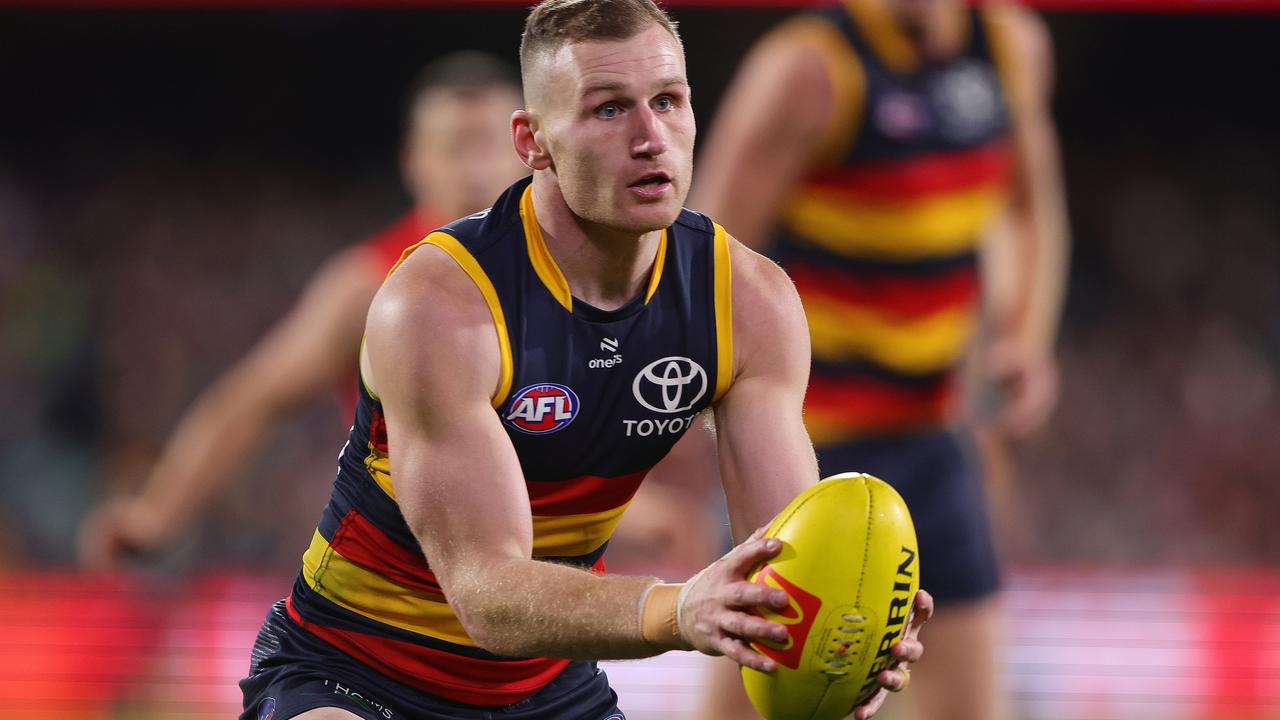Transcranial Magnetic Stimulation trial for Queen Elizabeth Hospital as Adelaide, Flinders Uni petition calls for public funding
The health minister says a trial will start next year in a major Adelaide hospital as students and the Greens call for it to be publicly funded.

SA News
Don't miss out on the headlines from SA News. Followed categories will be added to My News.
A costly treatment that helps people suffering from severe depression should be publicly funded as it proven to work and is less stressful to patients than existing remedies such as electroconvulsive therapy (ECT), advocates say.
Almost 200 medical students from Flinders and Adelaide University have signed a petition calling for the state government to fund a Transcranial Magnetic Stimulation (TMS) service, which was tabled by Greens co-leader Tammy Franks in parliament on Thursday.
Flinders medical student Sam Diprose, who organised the petition, said he had received both ECT and TMS to treat his own depression.
Mr Diprose, 26, said the difference between ECT and TMS was the difference between open-heart and keyhole surgery.
Patients require a general anaesthetic and a muscle relaxant before receiving ECT, which involves passing small electrical currents through the brain, which can relieve symptoms of severe depression. Mr Diprose said the procedure left him groggy and sore and most people needed between six and 12 sessions.

He said “whilst that’s great for the people that need it’’ a less-invasive option would help more people.
TMS uses magnetic fields to stimulate areas of the brain associated with mood control and depression and does not require anaesthetic.
Mr Diprose said when he received TMS he could go about a regular life.
“Forty minutes later that was finished, I could drive to work and be at work at 9am and go about a normal day,’’ he said.
The use of ECT and TMS is governed by the Office of the Chief Psychiatrist, John Brayley, which says a usual course of treatment would be 20 TMS sessions over four weeks.
There is only one private clinic in Adelaide that offers TMS and it costs patients $162.55 a session.
TMS is covered by Medicare, which provides a 75 per cent rebate, but only covers the first course of treatment.

A paper on the Chief Psychiatrist’s website states: “Figures have shown about 50 to 60 per cent of people with depression who have tried and failed to receive benefit from medications experience a clinically meaningful response with rTMS.’’
“Of those, about a third experience a full remission — meaning their symptoms go away completely.’’
Health Minister Chris Picton said the government was “keen to explore new and innovative services and treatments for mental health’’.
He also said a TMS trial would begin at the Queen Elizabeth Hospital would start next year.
It is believed the trial will start in April next year and include around 60 patients.
Ms Franks introduced a motion last year, which was passed, supporting TMS.
“TMS will save lives and change lives,’’ she said.
“TMS presents a huge opportunity to help people avoid more invasive and disruptive treatments. It’s time we make it available to everyone who needs it.’’




